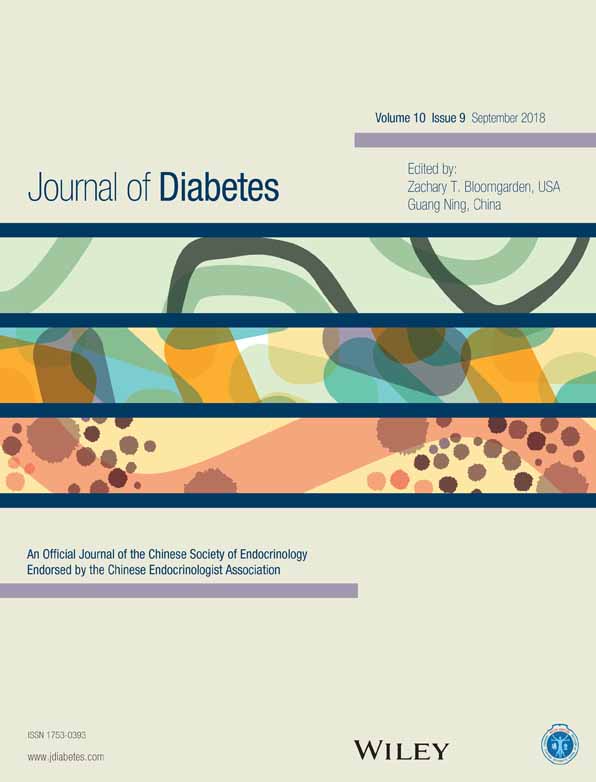Educational disparities in the associations between self-monitoring of blood glucose and glycemic control in type 2 diabetes patients in Xiamen, China
中国厦门市2型糖尿病患者自我血糖监测与血糖控制之间关联的 教育水平差异研究
Abstract
enBackground
This study examined the combined effects of self-monitoring of blood glucose (SMBG) and educational attainment on glycemic control in type 2 diabetes mellitus (T2DM) patients.
Methods
A cross-sectional survey was performed among community residents with T2DM. Good glycemic control was defined as HbA1c <7% in the most recent measurement. Multivariable logistic regression was used to examine associations of glycemic control with SMBG, educational attainment, and their combined effects by controlling for certain covariates, with further stratification by sex.
Results
Complete data were available for 798 patients, of which 58.52% had good glycemic control. Higher education and SMBG were associated with good glycemic control (P < 0.05). In the SMBG group, tertiary-educated patients had the greatest odds of good glycemic control (odds ratios 2.56; 95% confidence interval 1.31–4.99). Among those performing SMBG, the odds of good glycemic control were higher for those with higher education levels (Ptrend = 0.003), whereas there was no clear trend for those not performing SMBG (Ptrend = 0.071). For subjects attaining secondary and tertiary education levels, the odds of good glycemic control were higher in those performing SMBG, although there was no significant difference between the two groups for those with a primary education. Glycemic control decreased slightly among males with a primary level education, but showed an increasing trend among females with a primary level education.
Conclusions
Sex-specific educational disparities exist in the association between SMBG and glycemic control. More detailed guidelines for SMBG according to a subject's socioeconomic position and sex are required.
摘要
zh背景
本研究探讨了自我血糖监测(self-monitoring of blood glucose, SMBG)和教育水平对2型糖尿病(T2DM)患者血糖控制的联合作用。
方法
对患有T2DM的社区居民进行了横断面调查。将最近一次检查中糖化血红蛋白(HbA1c)< 7%定义为血糖控制良好。采用多因素logistic回归分析方法, 校正相关协变量后, 评估SMBG、教育程度和血糖控制的关系, 并探讨其联合作用。并进一步按照性别分层研究。
结果
该研究调查获得了798名患者的数据, 其中58.52%的患者血糖控制良好。更高的教育水平及进行SMBG与更好的血糖控制相关(P < 0.05)。进行SMBG且具有高等学历的糖尿病患者血糖控制水平最高(OR = 2.56, 95% CI = 1.31-4.99)。SMBG组的糖尿病患者中, 教育水平越高, 其血糖控制水平越高(Ptrend = 0.003), 但在未进行SMBG的糖尿病患者中这种趋势则不明显(Ptrend = 0.071)。对于中等和高等学历的糖尿病患者, 进行SMBG能够显著改善其血糖控制水平。而在初等学历的糖尿病患者中, SMBG组和非SMBG组的血糖控制效果差异不显著。按性别分层后, 初等学历的女性患者进行SMBG后血糖控制水平上升, 而初等学历的男性患者进行SMBG后血糖控制水平反而下降。
结论
SMBG和血糖控制之间的关联存在性别特异的教育水平差异。应根据患者的社会经济地位及性别来制定更详细的SMBG指南。




